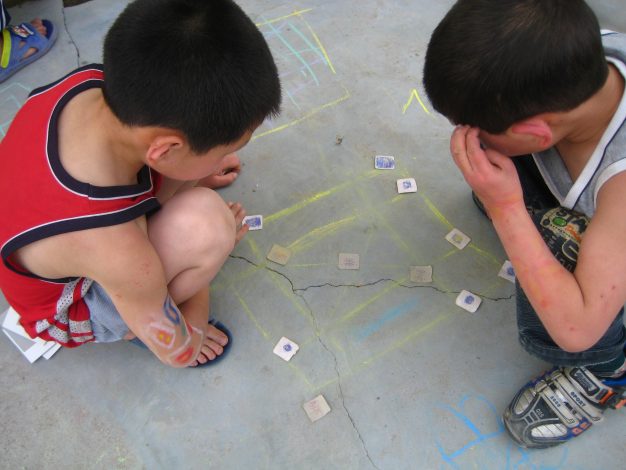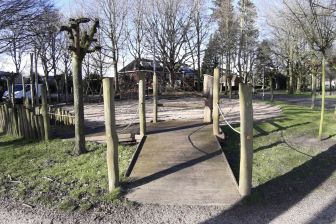
The relationship between play value and outdoor play spaces in Wuhan, China
In the city of Wuhan, improper planning policies and design concepts of residential areas have broken and even destroyed children’s outdoor play spaces, a recent research paper reveals. This has caused some physical and psychological problems for children living in high-density buildings.
A recent paper explores children’s experience of outdoor play in Wuhan, a dense and highly urbanized city in central China. The aim of the article is to “encourage children and young people to participate in the research and evaluation process to improve the outdoor play environment in the communities they live”.
Children’s voices in the research
The author argues it was vital to include children’s responses so adults are aware of their needs but also for parents to get gain insight into their children’s world. Children under the age of twelve were the primary research participants. As a result, collecting and analyzing data gathered from questionnaires “designed for both children and their parents” was one of the research methods used.
The study revealed only 5% of the participants are able to enjoy the outdoor space in the community after school. From that figure, children aged seven to twelve years “avoid playing after school and in weekday or after school, which may rise from the heavy load of study.”
Safety and security concerns
For children under the age of six and for girls age seven to twelve unsafe neighbourhoods and fears over ‘stranger danger’ is a significant barrier for them to play outside their communities. According to the paper: “The age distribution of this issue is quite similar with the kidnapping data in the literature that younger boys and elder girls are the main children who have been abducted. The issue of children abduction is not serious in Wuhan, however, this social issue has raised the parents’ fear and they might reduce and even not permit their children to play outside.”
The conclusion
Yuanyuan Shi the author of the paper concludes, outdoor play fulfills “children’s fundamental requirements for freedom, experimentation, risk-taking, adventure and just being children”. According to the author further research is required to in order to create safe and secure spaces for children that allow children to be adventurous.
To read the article in full click here.




